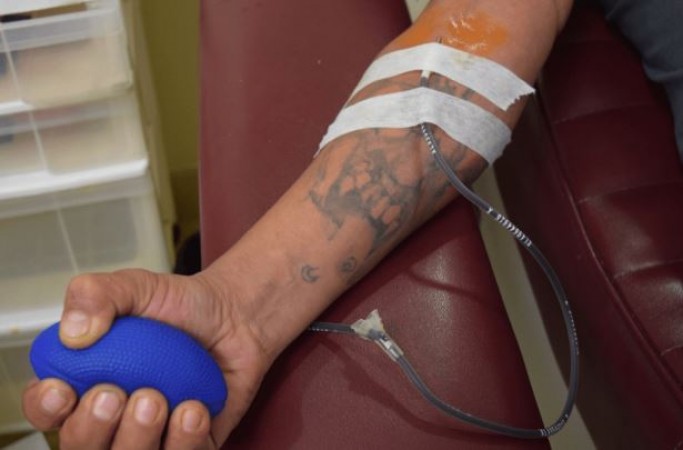
In today's society, tattoos have become increasingly popular among young people as a form of self-expression and artistry. However, while tattoos can be a meaningful way to adorn one's body, it's essential to be aware of the health implications, particularly concerning blood donation.
Why Wait?
According to guidelines from the World Health Organization (WHO), individuals should wait at least six months after getting a tattoo before donating blood. This waiting period is crucial because the process of getting a tattoo involves needles and ink that can potentially introduce infections into the bloodstream. Common infections of concern include hepatitis B, hepatitis C, and HIV, which can be transmitted through blood donations if the donor is not adequately screened.
Health Risks Associated with Immediate Donation
Health experts emphasize that donating blood immediately after getting a tattoo significantly increases the risk of transmitting these infections. The fresh wound from the tattoo process can still be healing, potentially providing a pathway for infections to enter the bloodstream. Therefore, waiting for six months allows time for any infections to manifest and be detectable through screening tests before donating blood.
WHO Guidelines
WHO recommends that individuals who have recently gotten a tattoo undergo a blood test after the six-month waiting period. This test is essential to ensure there are no traces of hepatitis B, hepatitis C, or HIV in their system. Only after receiving a clean bill of health from these tests should individuals proceed with blood donation. This precautionary measure not only protects the health of the donor but also ensures the safety of the blood supply for those in need of transfusions.
Safe Tattoo Practices
To minimize the risks associated with tattoos, it's crucial to ensure that reputable tattoo artists use sterile equipment and fresh ink during the procedure. Sterile needles and proper hygiene practices significantly reduce the likelihood of infections. After getting a tattoo, it's important to care for the tattooed area properly to promote healing and prevent complications. This includes avoiding activities like swimming or excessive sweating that could potentially introduce bacteria into the healing skin.
Public Health Importance
Following these guidelines is not only about personal health but also about public safety. Blood transfusions are critical medical procedures, and ensuring the safety of donated blood is paramount to preventing the spread of infectious diseases. By adhering to the recommended waiting period and undergoing necessary health screenings, individuals can enjoy their tattoo experience responsibly while continuing to contribute to community health through blood donation when eligible.
In conclusion, while getting a tattoo is a personal choice and a form of self-expression, it's essential to consider the broader implications, especially regarding blood donation. Adhering to the WHO guidelines of waiting six months and undergoing blood tests before donating blood helps mitigate the risks associated with tattoo-related infections. By taking these precautions, individuals can both enjoy their tattoos safely and contribute to saving lives through responsible blood donation practices.
Are You Working on Late Nights? Then Eat This To Keep Active
These Essential Tips Can Help You Prevent Kidney Stones, Would You Try Them?
What to Avoid When Eating Pomegranate: Important Tips for Health